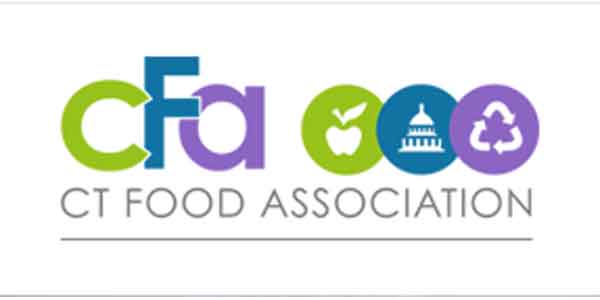The 2016 legislative session may have been short, running only from February to May, but it was chocked-full of issues that would have been detrimental to the food industry. That being said, CFA had one of its most successful sessions to date, defeating all legislation that would have adversely impacted the food industry.
The session began with a whirlwind and another gargantuan deficit legislators had to grapple with. Governor Malloy introduced his budget with drastic cuts and called for State Agencies to restructure the way they allocated money, basically achieving savings by not filling vacant positions or via layoffs. Unions and social service providers were up in arms and the Working Families Party introduced a laundry list of anti-business legislation. Increases in the Minimum Wage (to $12.00), Paid FMLA, Predictable Scheduling, and a Low Wage Worker Tax were top on our priority list to kill. Other bills that would have had negative impact were Plastic Bag Reduction MOU, Labeling of GMO Baby Food, Sugar Tax, an Easter Liquor Sales Ban, and Expansion of the Bottle Law to include juice, teas, wine and spirits containers.
CFA began work early on the Labor front and enlisted moderate Democrat legislators to help us defeat them. One of our biggest supporters was Sen. Cathy Osten who helped kill the Minimum Wage and Low Wage Worker proposals in committee. The Minimum Wage was then resurrected and debated for a while on the floor of the Senate. We furiously lobbied the members of the Senate and the Democrats realized that they did not have the votes to pass the initiative. Debate on the bill was then dropped and the measure died. The Low Wage Worker and Paid FMLA both died due to lack of support as did Predictable Scheduling. Thank you to all that made calls, sent emails or contacted their legislator.
Once again, Expansion of the Bottle Bill was looked at in the Environment Committee. The Commissioner of the Department of Energy and Environmental Protection testified that there is a problem with broken glass contaminating the single stream recycling. No investment or upgrade has been made in the single stream recycling system since its inception. Now glass sorting technology exists that “cleans” the stream and greatly reduces cross contamination. CFA has always been a staunch advocate of single stream recycling and helped to sponsor a bill that would have bolstered it. Expansion of the law was voted out of the Environment Committee but then killed in the General Law Committee.
As the session was drawing to an end, lawmakers were trying to plug a budget hole and initially filled it with Expansion of the Bottle Law to teas, juices, wine and spirits containers. The proposal would have brought in almost $11 million dollars to State coffers. We worked hard to remove the initiative from the budget and were ultimately successful with the help of Governor Malloy. The budget ultimately passed without expansion or tax increases.
Unfortunately we feel that all of these onerous bills will be back next year. We are again expecting another large budget deficit and will have our work cut out for us.
Below is a summary listing of new laws that passed in the CT General Assembly.
Gift Cards – This bill requires someone:
1. selling or issuing a gift card to provide the purchaser with an electronic or paper copy of a proof of purchase or gift receipt and
2. accepting a gift card as payment for goods or services to provide the purchaser, on request, with cash for the remaining balance on the card after the purchase if the (a) balance is under $3 and (b) purchaser provides the proof of purchase or gift receipt.
EFFECTIVE DATE: October 1, 2016
Reduction of Consumer Based Packaging Materials – this bill establishes a task force to study methods for reducing, through source reduction, reuse and recycling, consumer packaging that generates solid waste in the state. CFA applied for a role on the study task force.
EFFECTIVE DATE: UPON PASSAGE
Fair Chance Employment “Ban the Box” – This bill prohibits employers from asking about a prospective employee’s prior arrests, criminal charges, or convictions on an initial employment application unless (1) the employer must do so under state or federal law or (2) the prospective employee is applying for a position for which the employer must obtain a security or fidelity bond or equivalent bond. An employer may ask about a prospective employee’s arrests, criminal charges or convictions when the employer made a conditional employment offer.
The bill allows a prospective employee to file a complaint with the labor commissioner alleging a violation of this prohibition and subjects violators to a $300 per violation civil penalty imposed by the Labor Department. It also allows someone to file a complaint with the commissioner alleging an employer’s violation of existing law on employment-related criminal record checks.
Lastly, the bill establishes the Fair Chance Employment Task Force to study issues that include the employment opportunities available to people with criminal histories. The task force must provide two reports to the Labor and Judiciary committees on its findings and recommendations for administrative or legislative action. The first is due by January 1, 2017, and the second is due by January 1, 2018.
EFFECTIVE DATE: January 1, 2017, except the provisions creating the task force and making a conforming change are effective upon passage.
Alternative Electronic Pricing Options & Kosher Food Repealer –
ELECTRONIC RETAIL PRICING PROGRAM
The bill establishes, within available appropriations, a permanent alternative electronic retail pricing system program based on a pilot program that ended in 2001. The program test audits alternative electronic retail pricing systems that maintain and display the item and unit price of consumer commodities.
By law, a consumer commodity is any food, drug, device, cosmetic, product, or commodity of any class, except prescription drugs, which is customarily produced for retail sale for individual consumption, personal care, or household purposes and is usually consumed or expended during use. It does not include alcoholic liquor or carbonated soft drink containers.
Retailer Requirements
Under the bill, the DCP commissioner selects one or more retailers to participate in the program. A participating retailer must conduct business in more than one store in the state and submit to the commissioner a written request to participate in the program and pay all costs associated with the test audit under the program.
The retailer must implement a system to be test audited that, at a minimum:
1. maintains the retailer’s current item prices and unit prices for each product in an electronic database;
2. prints shelf tags that meet all applicable requirements for item and unit pricing; and
3. operates in such a way that price increases and decreases are immediately transmitted directly to the point of sale, but only if shelf tags are posted and the posting has been verified in the electronic database for price increases.
Audits
As under the pilot program, the commissioner may designate a private auditing organization to conduct such test audit and charge the cost of the audit to the selected retailer. During the audit, the store must be exempt from the universal product coding and electronic shelf labeling law and regulations, including the “get one free” law that generally allows consumers to receive a free item, under a certain price, if it scans at a higher price. The audit must not last longer than 12 months.
KOSHER FOOD REPEALER
The bill eliminates the DCP commissioner’s or his agent’s specific authority to enter certain premises to determine if the business is fraudulently selling kosher food. Such premises include (1) places where any meat or meat product is sold or offered for sale as kosher or (2) restaurants or other places where food being sold for consumption is represented as being kosher.
The bill also eliminates the criminal offense of fraudulently selling kosher meat, meat products, and other foods. Among other things, a person is guilty of this offense if he or she, with intent to defraud, sells or exposes for sale any food product, including meat, and falsely represents that the product is kosher or has been prepared in accordance with orthodox Hebrew religious requirements. A person is also guilty of this offense if he or she sells both kosher and nonkosher food without having a sign indicating that such foods are being sold together. A violator may be fined up to $100, imprisoned up to six months, or both.
EFFECTIVE DATE : July 1, 2016
Minors Selling Alcohol – This bill adds the provision requiring someone age 18 or over to approve beer sales at grocery stores when a minor is cashiering.
EFFECTIVE DATE: Upon passage
Tax Exemption for Diapers and Feminine Hygiene Products – The bill exempts from the sales and use tax sales of feminine hygiene products and disposable and reusable diapers. (section 205)
EFFECTIVE DATE: July 1, 2018 and applicable to sales occurring on or after that date.
Retirement Security – The bill makes numerous changes to PA 16-29, which creates the Connecticut Retirement Security Authority (“authority”) to establish a program for individual retirement accounts (IRAs) for eligible private-sector employees, who are automatically enrolled in the plan unless they opt out. The authority is administered by the Connecticut Retirement Security Authority Board, which the act establishes as a quasi-public authority under state law.
This bill:
1. sets the default contribution rate at 3% of an employee’s taxable wages for employees who do not select their own contribution rate (§ 96);
2. expands the authority’s board from nine to 15 members by adding the Office of Policy and Management (OPM) secretary, the Banking and Labor commissioners, and three additional members the governor appoints (bringing the total number appointed by the governor to four) (§ 97);
3. eliminates the requirement that the General Assembly consent before the governor’s choice of the chairman of the board is finalized (§ 97);
4. requires that eight board members, rather than four, constitute a quorum to conduct business (§ 97);
5. changes the name from “program” to “exchange”(§ 96);
6. authorizes the board to establish guidelines for the exchange to offer retirement investment choices from multiple vendors the authority selects (§ 98);
7. requires the authority to minimize total annual fees and, beginning in year five of operation, annual fees cannot exceed 0.75% of the value of total program assets (§ 100); and
8. requires the authority to establish and maintain a secure website to provide participants with information regarding approved vendors that offer IRAs through the program and the various investment options, including the investment performance history, that may be available for the IRAs (§ 107).
EFFECTIVE DATE: January 1, 2017 except the sections establishing the authority and changing the effective date of parts of PA 16-29 are upon passage, and the section requiring the website for participants is effective January 1, 2018.
Sections 96-109 & 208
Credit Card Settlement Entities Payments on Behalf of Retailers: The bill requires the Department of Revenue Services (DRS) commissioner to make reasonable efforts to facilitate the issuance of tax warrants on “payment settlement entities” (i.e., banks or third-party settlement organizations, such as MasterCard, Paypal, and Visa) for payments they made to Connecticut retailers.
EFFECTIVE DATE: Upon passage
Section 184


